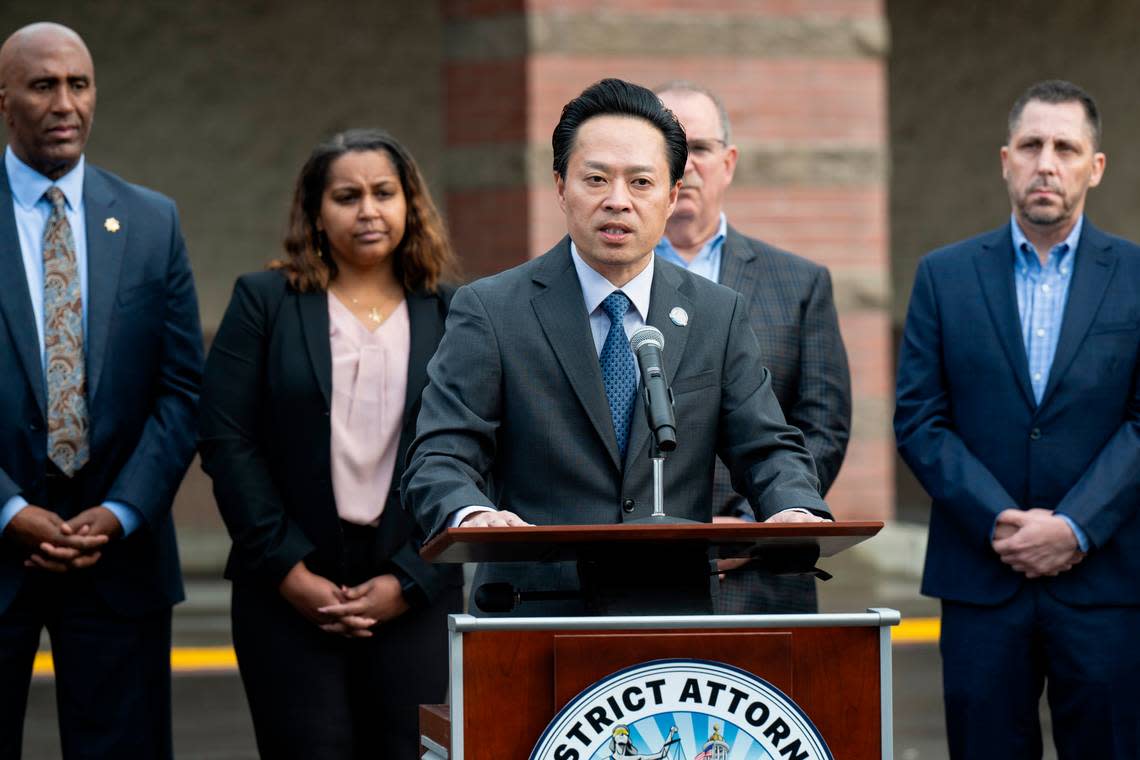Sacramento DA’s lawsuit against city in homelessness crisis paused for six months

District Attorney Thien Ho’s first-of-its-kind homeless lawsuit against the city of Sacramento is on a six-month pause.
The so-called “stay” will expire Feb. 1, according to a document filed Wednesday in Sacramento Superior Court.
“On July 17, 2024, the parties agreed to participate in mediation in a good faith attempt to resolve this complex matter before the pleadings are in issue,” the filing states. “In order to provide the parties with sufficient time to identify the proper mediator and schedule mediation, the parties have agreed to stay this matter for six months.”
Mediation is a common practice in civil lawsuits against the city, said civil rights attorney Mark Merin, who has frequently sued the city.
Due to the stay, the city will have until Feb. 1 to file a response to Ho’s amended complaint, which he filed in June.
Ho originally filed the suit in September, alleging the city was causing a public nuisance by allowing homeless camps to exist on public property, and also violating a state law by allowing camps along creeks.
City spokesman Tim Swanson and DA’s Office spokeswoman Shelly Orio did not immediately provide comments on the filing.
Sacramento Superior Court Judge Jill Talley in May ruled the lawsuit could move forward, but it had to be scaled down to remove the public nuisance claim, due to the separation of powers between the government and the DA. The complaint also claimed the city is violating the state Fish and Game Code by allowing the homeless to pollute creeks — a claim that remains in the amended complaint.
Ho’s amended complaint again including the public nuisance claim, as well as the Fish and Game Code claim.
The creeks that are on city property, such as Morrison Creek, flow to the Sacramento and American rivers. But the county, which is in charge of large sections of the American River Parkway, where thousands of unhoused people camp on the riverbanks, is not named as a defendant in the lawsuit.
Since Ho filed the lawsuit, the U.S. Supreme Court overturned the 2018 Martin v. Boise ruling, which means the city no longer has to provide a shelter bed in order to clear camps. It’s unclear whether the development will affect Ho’s case against the city. The city’s roughly 1,300 shelter beds are all typically full, with a waitlist topping 2,500.
City Attorney Susana Alcala Wood has accused Ho of suing the city because he plans to run for attorney general, possibly against Mayor Darrell Steinberg — an allegation Ho has denied.

